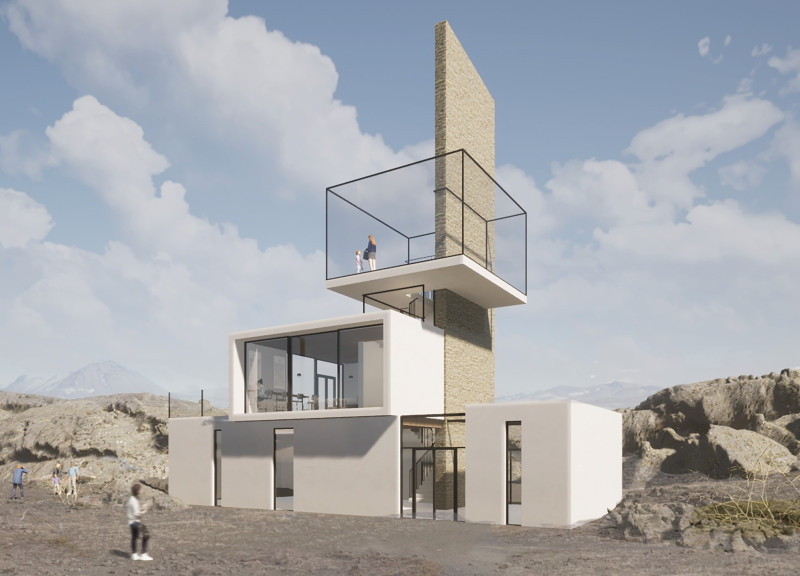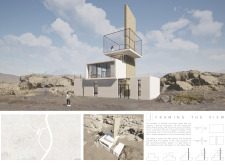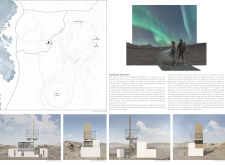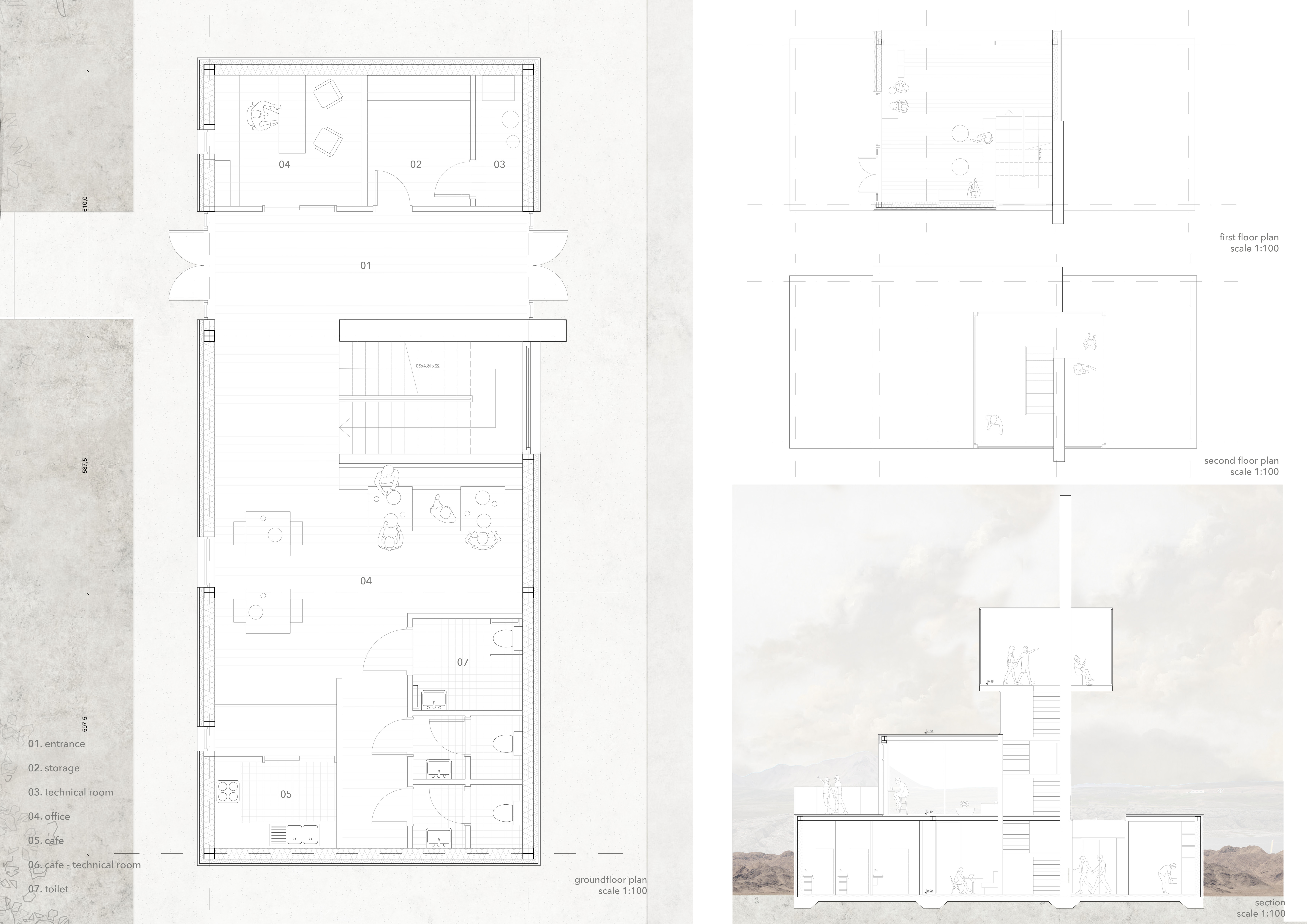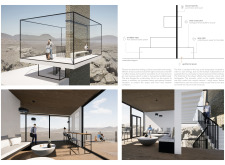5 key facts about this project
The primary representation of this architecture lies in its commitment to providing a unique experience through well-considered design choices. The structure is divided into multiple zones, each offering its own perspective and connection to the outdoors. By prioritizing the experience of light and space, the design allows occupants to appreciate both the daily and nocturnal landscapes, particularly the captivating views of the northern lights.
Functionally, the project is multifaceted, catering to various needs ranging from communal spaces to areas designed for individual reflection. The entrance hall acts as a welcoming space, orienting visitors toward the stunning vistas that define the site. This is complemented by a café that fosters social interaction and encourages community engagement. In addition to these communal areas, private offices and technical rooms provide necessary functionality while maintaining a connection to the broader environment.
One of the standout features of “Framing the View” is its careful approach to material selection. The project employs natural materials such as stone, wood, glass, steel, and concrete, each chosen not only for their aesthetic qualities but also for their ability to resonate with the local surroundings. Stone brings a sense of permanence, while wood adds warmth and texture to the interior spaces. Extensive use of glass enhances natural light flow and creates visual transparency, blurring the boundaries between inside and outside. Meanwhile, steel and concrete serve structural purposes, ensuring the durability of the building in a challenging environment.
The architectural design includes several elements that encourage interaction with the landscape. The cantilevered balcony, for instance, provides a unique vantage point, allowing occupants to enjoy panoramic views of the surroundings. This thoughtful design promotes a sense of exploration and connection to nature, reinforcing the project’s core philosophy. The pathways that connect various zones of the building further enrich the experience, encouraging users to wander and engage with the site.
Sustainability has also been an important consideration in the design approach. The project incorporates systems for rainwater harvesting and geothermal energy, attesting to a commitment to minimizing environmental impact. Additionally, integrating solar panels enhances the building’s energy efficiency and supports an environmentally responsible way of living.
The overall architectural design of "Framing the View" emphasizes simplicity and elegance, focusing on clean lines and functional spaces that serve their intended purpose without excess. By balancing aesthetics with practical considerations, the project reflects a modern architectural language that respects and enhances its natural surroundings.
To delve deeper into the intricacies of this project, including important aspects such as architectural plans, sections, and design ideas, readers are encouraged to explore the complete presentation of the project, which will provide further insights into the thoughtful design and the vision behind “Framing the View.”


